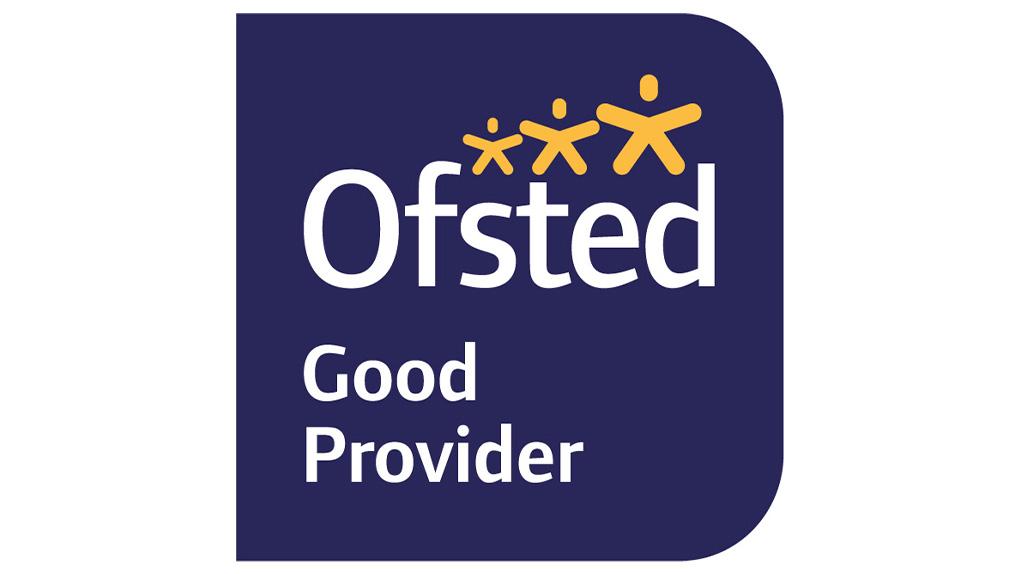British Values and SMSC
British Values
The Government’s ‘Prevent’ strategy (2011) specifies that schools need to have a focus on the core British values. At Niton Primary School we are proud of being British, we encourage our children to hold the following British values:
Our Values
Through our curriculum and everyday learning we promote the fundamental British values of democracy, the rule of law, individual liberty, and mutual respect and tolerance of those with different faiths and beliefs.
We actively challenge opinions or behaviours in school that are contrary to fundamental British values.
At Niton Primary School these values are reinforced regularly and in the following ways:
Democracy:
Democracy is a principle that we uphold in our school. Pupils have the opportunity to have their voices heard through class discussions, Spencer Bear kindness awards, our Pupil Parliament, House and Vice house captains and pupil questionnaires. Each class has a regular opportunity to share ideas and to contribute, with the class representative taking forward their views. Children will often be asked for their views through assemblies and also through involvement in the local community.
Examples of Democracy at Niton
Democracy is evident within the school. Pupils have the opportunity to have their voices heard through our Spencer Bear group, Houses, Pupil Parliament and Golden Ticket monitoring. They also complete annual Pupil questionnaires.
Pupil parliament representatives in each class are voted for. We encourage pupils to volunteer through our play leader support programme and plastic-free school initiative.
Our school behaviour policy involves lots of rewards. Our Curriculum offers many opportunities to discuss democracy – The Romans, The Ancient Greeks. It allows us to consider events in history where British values have been tested – WW1 and WW2.
Cross curricular literacy work gives children opportunity to give their views, debate and argue, making well considered points and looking at both sides of an argument. A competitive spirit is also encouraged through our House system – e.g. every child competes to earn points for their house at sports day.
Children are taught about the United Nations Convention on the Rights of the Child and learn to respect their rights and the rights of others.
Election Campaigns and Assembly
Each year at Niton we prepare for our own House Captain election by having an assembly which introduces the idea of a General Election and democracy. We talk about how parliament had been dissolved and how now the people had a chance to choose a new government and compare this to our leaving house captains and the opportunity to choose new house captains. We talk about voting and how every child in each house at Niton has the opportunity to vote for their house representatives. We liken this to voting for an MP. We discuss ballot papers and the ballot box.
The Rule of Law:
The importance of Laws, whether they be those that govern the class, the school, or the country, are consistently reinforced throughout the school day, as well as when dealing with behaviour and through school assemblies. Every year each class sets their rules and class charters in the first week of term as part of their PHSE lesson. As they are included in setting them, children understand why the rules matter and also recognise the significance of not adhering to these agreed rules. Pupils are taught the value and reasons behind laws, that they govern and protect us, the responsibilities that this involves and the consequences when laws are broken.
Examples of The Rule of Law at Niton
The importance of Laws, whether they be those that govern the class, the school, or the country, are consistently reinforced throughout regular school days, as well as when dealing with behaviour and through school assemblies.
We have high expectations of our pupils at Niton and this is reflected in our Behaviour for learning policy.
Pupils are taught the value and reasons behind laws, that they govern and protect us, the responsibilities that this involves and the consequences when laws are broken. Visits booked as part of our Careers assemblies reinforce the message that everyone follows rules – PSCO / Fire Safety etc
Through PSHE, RE and assemblies children are taught how to earn trust and respect and are supported to develop a strong sense of morality; knowing right from wrong and doing the right thing even when it’s difficult.
Individual Liberty:
Within school, pupils are actively encouraged to make choices, knowing that they are in a safe and supportive environment. Pupils are encouraged to know, understand and exercise their rights and personal freedoms and are advised on how to exercise these safely, for example through our E-Safety and PSHE lessons. We provide a wide range of extra-curricular clubs and our school curriculum allows for opportunities for pupils to be given the freedom to make choices.
Examples of Individual Liberty at Niton
Within school, pupils are actively encouraged to make choices, knowing that they are in a safe and supportive environment. As a school we educate and provide boundaries for young pupils to make choices safely, through the provision of a safe environment.
Pupils are encouraged to know, understand and exercise their rights and personal freedoms and advise how to exercise these safely, for example through our Anti-Bullying, E-Safety and PSHE lessons. Children taught about personal responsibility, choices, ambition and aspiration. They are encouraged to take opportunities to follow their interests in art, music, sport etc.
Children are taught how to keep themselves safe, including online. This is done through computing lessons, assemblies and outside organisations such as the NSPCC, as well as through the PSHE curriculum.
Mutual Respect:
Part of our school ethos and Behaviour for Learning policy has revolved around Core Values such as ‘Respect’, and pupils have been part of discussions and assemblies related to what this means and how it is shown. Posters around the school encourage positive behaviours and promote respect for others.
Examples of Mutual Respect at Niton
Our school values ‘hold your values in your hand’ overview has ‘Respect’ as one of our Core Values. Pupils have been part of discussions and assemblies related to what this means and how it is shown. This is reiterated through our classroom rules, the High 5 Anti-Bullying hand as well as our behaviour policy.
Pupils are encouraged to have respect for themselves. We have achieved the silver award as a Rights Respecting School.
Each year we take part in anti- bullying week. Every year we show respect for others by fundraising for a number of charities, our house captains have selected charities to raise awareness and funds for, but we also support other charity events. We have supported events such as – Children in Need, Sports Relief, Save the Children, Red Nose day, Every year we celebrate Harvest and donate goods to the local Food Bank.
Tolerance of those of Different Faiths and Beliefs:
This is achieved through enhancing pupils’ understanding of their place in a culturally diverse country and by giving them opportunities to experience such diversity. Assemblies and discussions involving prejudices and prejudice-based bullying have been followed and supported by learning in RE and PSHE. Members of different faiths or religions are encouraged to share their knowledge to enhance learning within classes and the school.
Examples of Tolerance of those of Different Faiths and Beliefs
This is achieved through enhancing pupils’ understanding of their place in a culturally diverse society and by giving them opportunities to experience such diversity.
Tolerance of different faiths and beliefs is promoted through the Syllabus for Religious Education. Children learn about different religions, their beliefs, places of worship and festivals. The children’s work on this subject or whole school learning in assemblies which is often displayed in the classrooms or around the school. This is supplemented by assemblies (Key Stage and whole school), which also mark and celebrate significant religious festivals such as Ramadan and Diwali.
We follow the Hampshire Agreed Syllabus for teaching RE
Celebrating British Events
When the opportunity arises, we celebrate British events, each year we celebrate remembrance day. In the past we have celebrated with street parties, we have also celebrated Royal Weddings with a wedding of our own. We celebrated the Coronation Service of Their Majesties King Charles III and Queen Camilla with a picnic celebration.
Curriculum:
Where possible we try to link social aspects of living in our country with our learning experiences or English themes.
We run a programme of PSHE topics through assemblies and separate sessions and we communicate this to parents and carers through our weekly newsletter, termly class newsletters and our website. Our supportive school atmosphere means children are able to develop and express their own views and opinions whilst teaching them to respect the ideas and beliefs of their peers. Children are taught to be aware of and responsible for their own emotional responses and they learn how to express them healthily.
Relationships:
A key strength at Niton Primary School is the relationship between all our staff and the pupils. We encourage mutual respect and this is evident every day in how we speak to each other and the relationships that we build with the children. Visitors to our school and members of the public, who see us out and about on the many trips we go on, comment positively.
Actively promoting British Values also means challenging pupils, staff or parents expressing opinions contrary to fundamental British Values, including ‘extremist’ views.
SMSC
What is SMSC?
It is the Spiritual, Moral, Social and Cultural development of the children in our school. This is an aspect of learning that is evident in both lessons and behaviours in school, rather than a specifically taught subject. Some subjects do enable more direct SMSC development though, such as PSHE and RE. We also aim to develop SMSC through worship, behaviour expectations and our school values and motto. (Ofsted have provided specific SMSC definitions which are below).
Ofsted Definitions of SMSC
Spiritual development is shown by their:
beliefs, religious or otherwise, which inform their perspective on life and their interest in and respect for different people’s feelings and values
sense of enjoyment and fascination in learning about themselves, others and the world around them, including the intangible
use of imagination and creativity in their learning
willingness to reflect on their experiences.
Moral development is shown by their:
ability to recognise the difference between right and wrong and their readiness to apply this understanding in their own lives
understanding of the consequences of their actions
interest in investigating, and offering reasoned views about, moral and ethical issues.
Social development is shown by their:
use of a range of social skills in different contexts, including working and socialising with pupils from different religious, ethnic and socio-economic backgrounds
willingness to participate in a variety of social settings, cooperating well with others and being able to resolve conflicts effectively
interest in, and understanding of, the way communities and societies function at a variety of levels.
Cultural development is shown by their:
understanding and appreciation of the wide range of cultural influences that have shaped their own heritage
willingness to participate in, and respond to, for example, artistic, musical, sporting, mathematical, technological, scientific and cultural opportunities
interest in exploring, understanding of, and respect for cultural diversity and the extent to which they understand, accept, respect and celebrate diversity, as shown by their attitudes towards different religious, ethnic and socio-economic groups in the local, national and global communities.







